
HENI Equilogue: Addressing women’s gynaecological health through the life course in South Asia
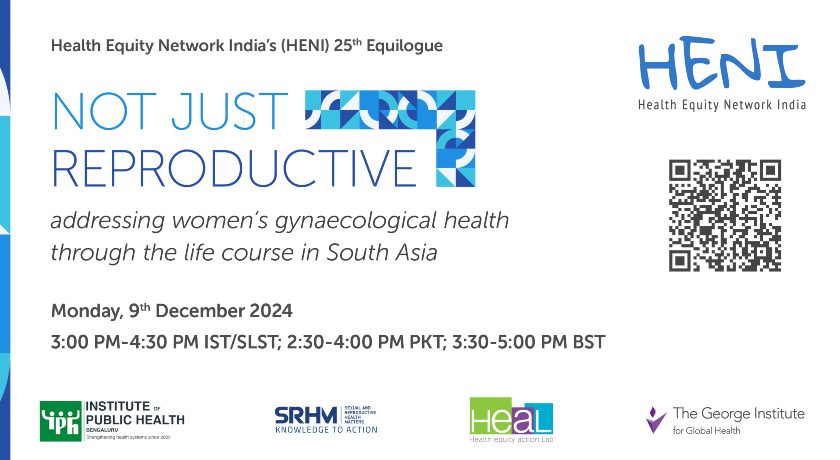
Across South Asia, we know too little about women’s health issues beyond reproductive and maternal health. Other gynaecological needs across the life course remain overlooked in policy, research and advocacy. For instance, what services are available for women who experience excessive bleeding or uterine fibroids, or for women who are entering menopause? Data on gynaecological conditions, and services to address them, are sparse in many parts of South Asia. In India, national surveys indicate that early hysterectomy (surgical removal of the uterus before 45 years) is a common treatment in several parts of the country—a reflection of the absence of quality care for women’s health.
9th December 2024 | Monday | 1500-1630 IST
Globally, emerging evidence indicates that reproductive life events, such as age at childbirth, gynaecological conditions and early hysterectomy, are linked to later risk of non-communicable diseases including diabetes, hypertension, osteoporosis and mental health. These linkages underscore the importance of addressing women's gynaecological health not only as a matter of their well-being – but as a critical component of their sexual and reproductive health and rights.
In collaboration with Study and Action on Hysterectomy: Evidence on women’s health through the life course in India (SAHELI) consortium and Sexual and Reproductive Health Matters, HENI is organising a webinar to initiate a discussion on the multifaceted issues that influence women’s gynaecological health in South Asian contexts.
The webinar aims explore common challenges and complexities related to women's gynaecological health through a conversation with practitioners and researchers in India, Bangladesh, Sri Lanka, and Pakistan. By exploring the sociocultural, economic, and health system patterns that impact women’s health, we aim to foster shared learning and contribute to a comprehensive action agenda for the region.
Agenda
3:00-3:05 PM IST - Overview by Sapna Desai, SAHELI/Population Council Institute
3:05-4:00 PM IST - Panel discussion
4:00-4:25 PM IST - Q&A
4:25-4:30 PM IST - Closing/next steps, Neymat Chadha
Speakers
Deepti Govil-International Institute for Population Sciences and SAHELI, India
Dipti Govil is an Assistant Professor at the International Institute for Population Sciences (IIPS) in the Department of Family and Generations in Mumbai, India. Her research focuses on reproductive aging, health policy, women’s health mental health and qualitative methodologies. Dr Govil was co-PI of the Longitudinal Ageing Study in India. She has more than 20 years of experience in the field of research and teaching. She has also worked with the Indian Institute of Health Management Research (IIHMR) and Indian Institute of Management (IIM), Ahmedabad. Dipti is a Co-PI of SAHELI.
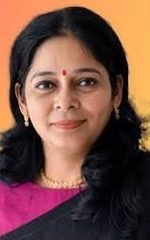
Kaosar Afsana - BRAC JPG School of Public Health, Bangladesh
Kaosar Afsana is a Professor of Public Health at James P. Grant School of Public Health, BRAC University in Bangladesh. She has over three decades of experience in public health embracing research, implementation, and policy-influencing in SRHR, MNCH, community health, health systems, nutrition, food systems and ECD. She is an MD with an MPH from Harvard University, USA and PhD from Edith Cown University, Australia. She represents many international and local organizations in diverse health and nutrition arenas. She authored books and widely published papers in journals and books and has been awarded for her academic and professional excellence.demic and professional excellence.
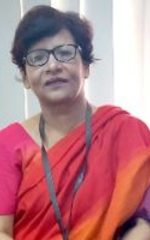
Neha Mankani - Mama Baby Fund, Pakistan
Neha Mankani is a global health practitioner and midwife based in Pakistan, currently serving at the International Confederation of Midwives (ICM) as Humanitarian Engagement and Climate Advisor. She has extensive experience in SRHR and maternal and neonatal health clinical practice, programming, and midwifery advocacy both at the local and global levels. Her midwifery practice has focused on low-resourced settings, reproductive health and rights in crisis situations, emergency response and climate-affected communities. She is the founder of the Mama Baby Fund, a financial emergency fund for maternal and neonatal healthcare in Pakistan. Neha has been highlighted as a climate hero in the BBC100 women list for 2023.
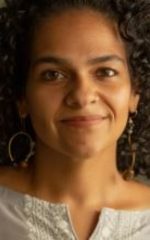
Ramya Kumar - University of Jaffna, Sri Lanka
Ramya Kumar (she/her) is with the Department of Community and Family Medicine, Faculty of Medicine, University of Jaffna. Her training is in medicine and public health. Her current research interests include access to healthcare, gender and health, the politics of global health, decolonizing global health, and applying critical feminist methodologies to health research. Ramya has authored several academic articles on health policy and health reform and writes regularly in the media to further her commitments to social justice.
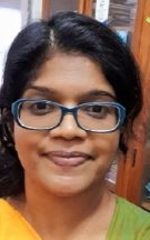
Sapna Desai - SAHELI/Population Council Institute
Sapna Desai is Senior Fellow at the Population Council Institute, New Delhi and currently leads SAHELI, a multi-institution consortium on hysterectomy and women's health through the life course in India. She is co-chair of the board of Sexual and Reproductive Health Matters. Previously, she co-led the global Evidence Consortium on Women’s Groups. She also spent several years working with the Self-Employed Women’s Association, (SEWA), India’s largest organisation of women workers in the informal economy, where she scaled community health worker and women’s health programmes in six states of India. Sapna holds a PhD in epidemiology and population health from the London School of Hygiene and Tropical Medicine and MS from the Harvard T.H. Chan School of Public Health.
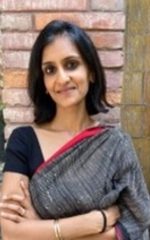
Neymat Chadha - The George Institute for Global Health and SAHELI
Neymat is a Research Fellow at the George Institute for Global Health, focusing on community action for health and social participation, health equity, primary health care, and women’s health. Trained as a sociologist with a specialization in medical sociology, Neymat is currently pursuing her PhD in social anthropology at the Indian Institute of Technology (IIT) in New Delhi. Her doctoral research is an ethnographic study of early-age hysterectomies among Dalit and Vanjari agricultural labourers in India.


